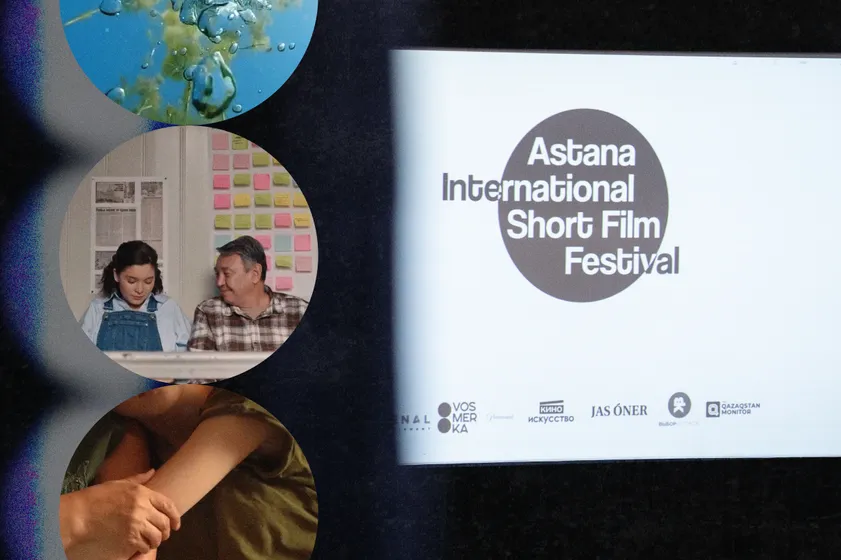Amidst the evolving landscape of Kazakhstan's film industry, notable strides are being made not only in producing historical dramas and family comedies but also in crafting high-quality auteur films, showcasing a diverse cinematic landscape. On November 16–18, the Astana International Short Film Festival captivated the capital’s film enthusiasts with a curated program featuring short films from Kazakhstan and around the world.
The three-day event featured workshops, film screenings, and lectures by industry specialists. On the final day, eight live-action short films, including "Ask," "Descendants of the Dark," "The Man that Has a Mother," "Limbo," "Epilogue," "Zheztyrnak," "Defender of the Steppe," and "Marinade," were screened.
Each film explored unique themes, such as the consequences of dictatorship in "Ask," Alzheimer's disease and the mother-son connection in "The Man That Has a Mother," and the journey of finding one's way in "Limbo."
Following the screening, Alibi Mukushev’s animation "Matches" premiered, accompanied by a lecture on New Romanticism in Kazakh Feature Film by Inna Smailova. The event also presented seven more competition short films, including “Sabyr,” “Saudade,” “Incubator,” “Mannequin,” “Happy Independence Day,” “Earth,” and “The Sounds of the Last Express," culminating in an award ceremony honoring the festival's winners.
At the event, QazMonitor talked to Maxim Edukin, one of the organizers of the event, about the importance of film festivals, the charm of short films, and advancements in the cinema industry.

What do you think about today's festival?
As the organizer of the festival, I am thrilled with today's event because we managed to create a certain atmosphere; the air is filled with people's interest and passion for cinema. Many people are discovering new genres and forms, which is great. This is exactly what this film festival was created for.
Why are such festivals important for directors?
For young directors, it is crucial to showcase their films on the big screen for the real audience, as they get to experience an atmosphere where everyone shares the emotions embedded in the films.
It is one thing to see pleasant numbers when you release your film somewhere, but it is another to feel the audience's reaction together with them. It is an incomparable feeling that greatly inspires and motivates [directors] to achieve more, to make the audience react stronger, or to relay emotions differently; each person has their own reason for creating films.
Another reason is education. We indirectly (and sometimes directly through lectures) enrich [the directors’] visual experience and educate them as individuals, helping them see what works in short films and what works in feature films.
In your opinion, what is the charm of short films compared to feature films?
Firstly, short films are bolder than feature films because they are made for experimentation. Even esteemed directors with Oscars, Golden Globes, and Golden Palms still enjoy making short films because they provide a field for experimentation. For young, inexperienced directors who have yet to define their style, short films are like drafts where they try things out and search for something that resonates with them. Some renowned directors are also seeking their path [through short films] because they might feel uncomfortable [working] in the direction the audience associates them with.
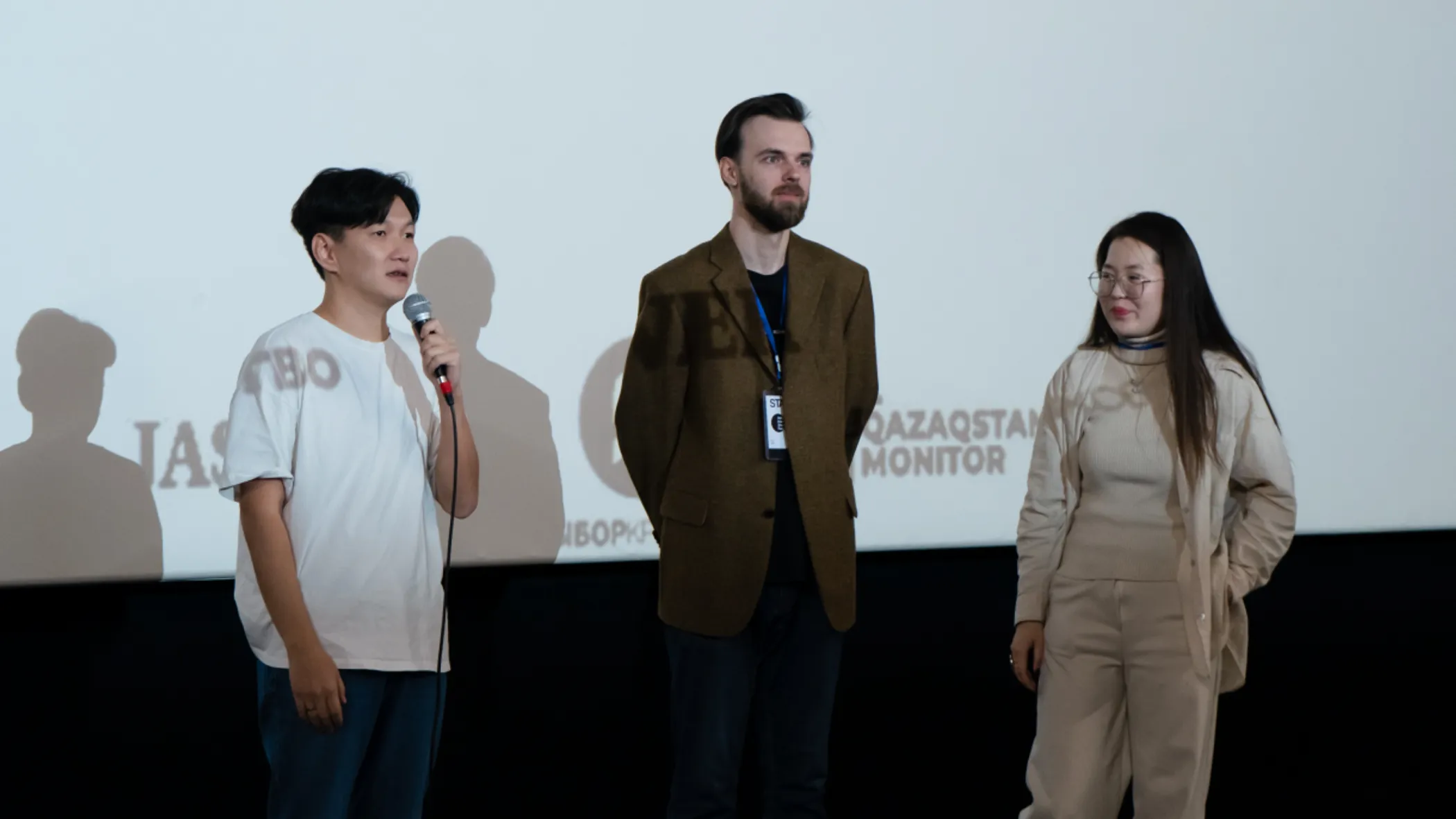
What prospects do you see for the development of short films in Kazakhstan?
I would like to see more short films being made so that people understand that filmmaking has become more accessible. Nowadays, everyone has a camera in their pocket that is much better than what the Lumière brothers or Charlie Chaplin had. However, we still watch films from that era. Nothing stops us from creating films and telling our stories about anything that might interest a specific audience. In our globalized age, even enthusiasts of niche subjects like pinky fingers, for example, could watch your films if you shoot a movie about the beauty of pinky fingers. There is an audience for any topic, the key is to convey your ideas effectively, ensuring that it would be understood by everyone, more or less.
What advice would you give to aspiring directors?
My advice would be to understand the theme of the film thoroughly. It is essential to understand what the film is about. While the problem might be clear, the theme is not always obvious. Young directors often dislike engaging in thematic analysis, preferring to focus on a detailed and elaborated image of a single scene. This can lead to them losing sight of the overall canvas of the work. There are very few well-formulated short films, and I would like directors to think more about the thematic content of the film rather than only its execution. It can be difficult to watch a technically well-executed film that does not have an idea because you sit there thinking, "It is beautiful, but I don’t really understand what is happening."
A good story captures attention regardless of how it is shot. That is why we still watch old films; we love the story and the storytelling, which is why we even forgive some technical mistakes if the storytelling is compelling.
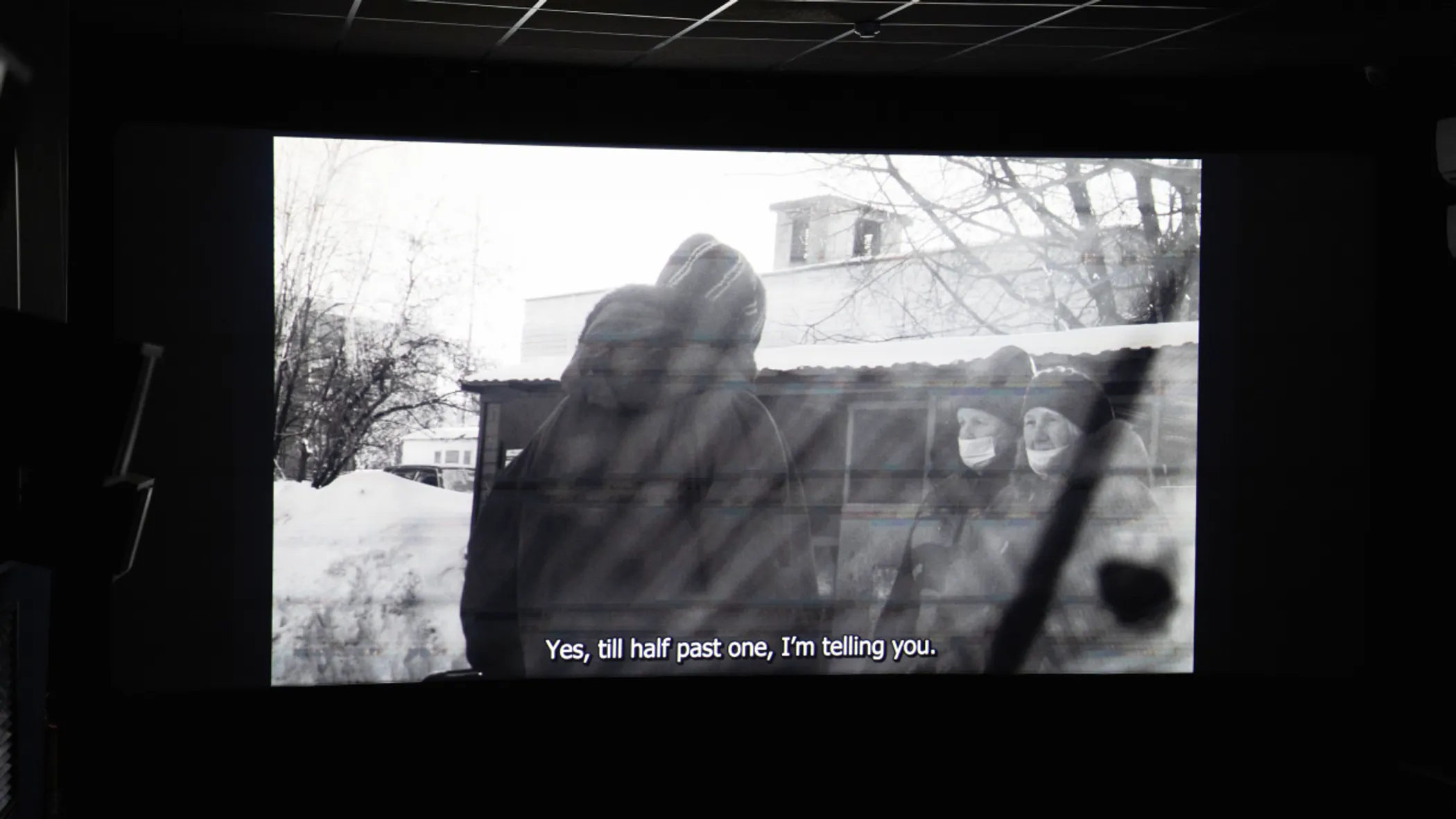
Commenting on the acclaim of the festival in Astana, Yevgeniy Lumpov, a jury board member and the Head of the Zaman Media project, noted that short films are incredibly relevant for both viewers and industry experts.
At the invitation of the AISFF organizers, our team prepared a brief presentation about Zaman Media, explaining what the project is and showcasing the initial steps of the project. Exclusively for the festival, we revealed previously unpublished short films, marking the first-ever screening of such works on the big screen in the history of independent Kazakhstan. The audience was presented with animated films by Kaldybay Seydan, namely 'Yenshi' and 'Legend of the Black Wolf,' Anuar Raybaev's documentary 'Tekemet,' and the chronicle by Bauyrzhan Nogerbek and Bolat Omar, titled 'And the Wizards Gathered.' The project received a warm reception, seamlessly blending into the festival's diverse program. The sustained high engagement over three days of the festival highlighted the significance and demand for short films today, reaffirming that there’s a broad audience in the capital, comprising not just industry professionals but also passionate film enthusiasts.
Following the initial screening of the short films, QazMonitor sat down with director Alibi Mukushev to discuss his recent works, the current state of the film industry, and his favorite Kazakh auteur films.
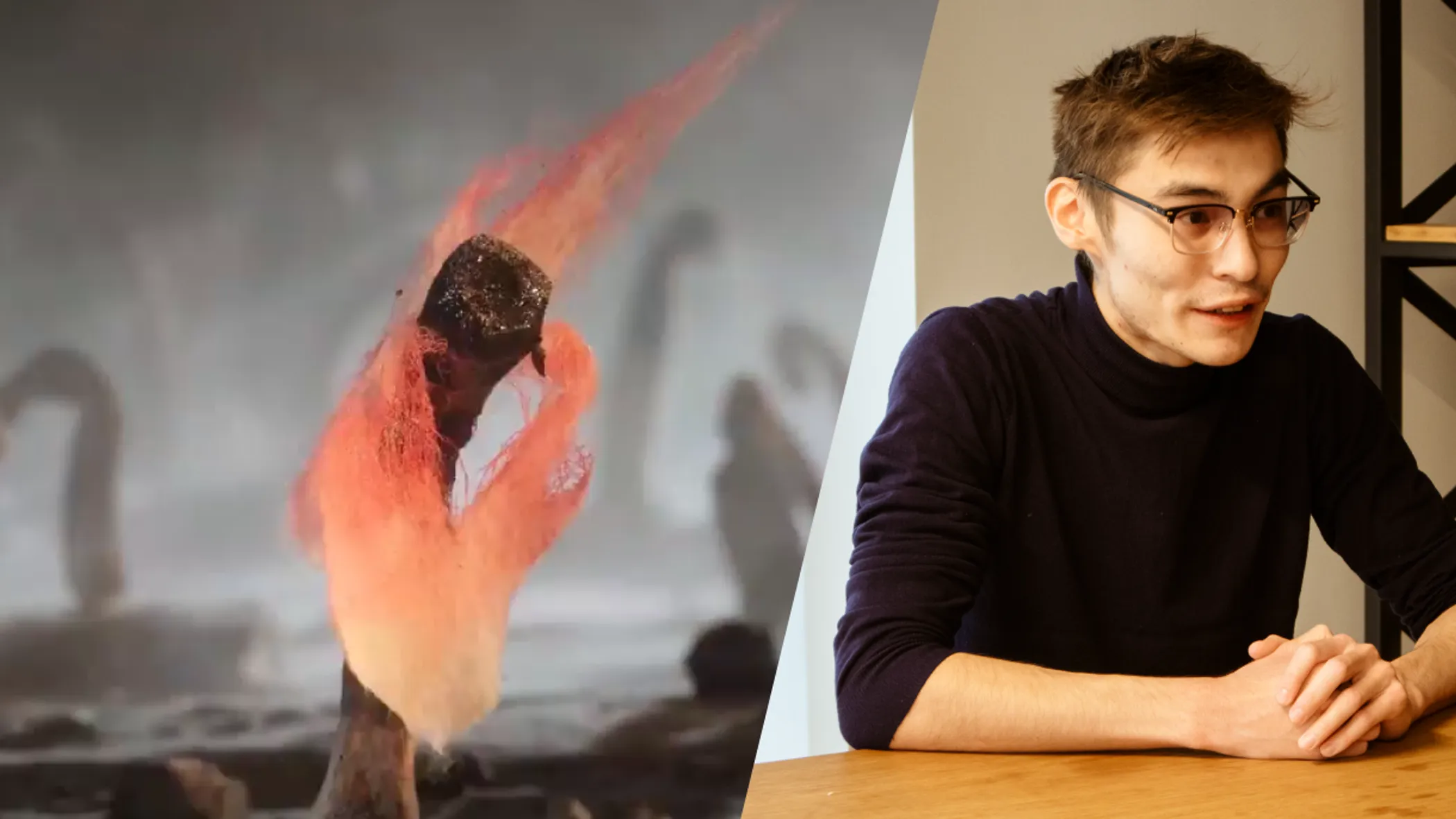
How do you feel about today's festival, and which films shown today were your favorites?
I enjoyed "The Incubator" by Yana Bushmina. It is visually stunning, with a personal story. I appreciate that this festival showcases works that delve into the internal issues of the authors themselves. The works are not about something abstract or floating in the air, but rather about what personally troubles the author. These days, I appreciate the trend in society where people openly express their problems and worldviews, and this is increasingly reflected in cinema.
While there is significant support for socially relevant films addressing societal issues, I would also like to see support for films revealing the internal experiences of the authors. They're not alone, and many people in society share similar problems. Through these films, they can find support.
Your film "Matches" will have a special screening today. What inspired you to make this film?
The year 2022, the war in Ukraine - the military operation, the January events, and the overall mood of that time inspired the film. We shot it in February 2022, and the film reflects the collective atmosphere of that period. However, the film's main message is about humanity, compassion, and what it means to be human. The film provides an answer to this question.
What emotions do you hope to evoke in the audience with this film?
I aim to evoke love for humanity itself because violence, war, and everything that is happening now is universally terrible, irrespective of politics – people are dying.
In your view, what are the advantages of short films compared to feature films?
Short films can be created by the author alone, while a feature film typically requires a budget. To secure a budget, your work needs to align with certain interests. Authors inevitably have to make compromises. However, full-length authorial cinema is now developing well, and the trend [of compromising] is diminishing.
In short films, there are no barriers; we can witness the sincere voice of the author, which is powerful because it provides a great foundation for a start.
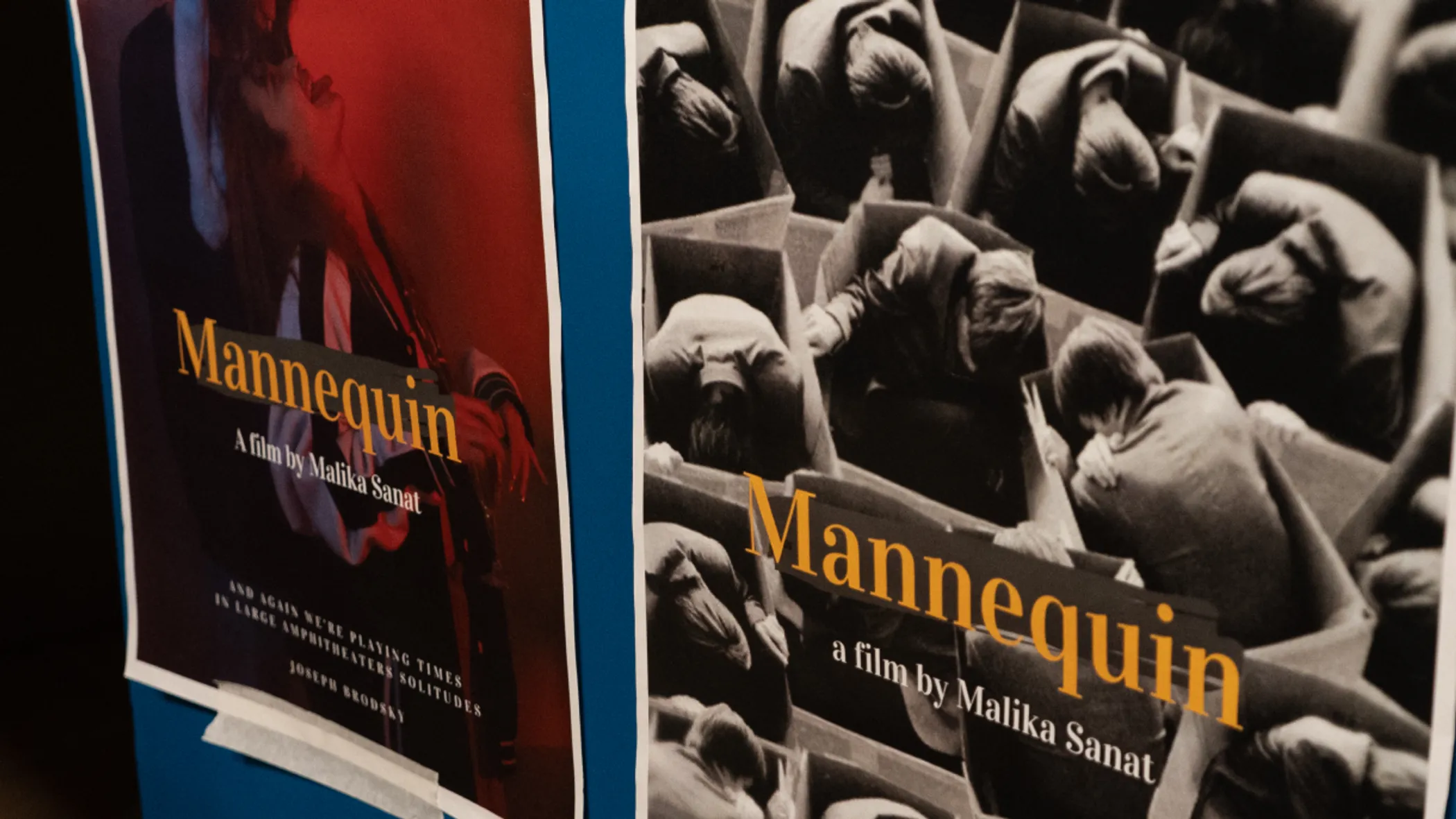
How do you see the current state of the film industry in Kazakhstan?
The film industry in Kazakhstan lacks overall cohesion and structure, but there are many talented directors. These directors across Kazakhstan are gradually pushing the industry forward.
Recently, I conducted an experiment where I interacted with people outside the film or creative industry. I spoke with individuals from IT, the energy sector, and business.
Unfortunately, the average person is unaware of the processes that are happening in our industry. On the flip side, I am also unaware of the processes in other industries. However, these are parts of a larger system that may not be well-organized but still exists and is evolving.
You can gain a lot of optimism by listening to other people because you see the passionate eyes of people who want to make a difference. Yes, there are various obstacles, there is no specific system, and we are unaware of what is happening in other industries. I talked to people who work in business and asked what Kazakh films they have watched, and they named six comedies that were shown in cinemas. They were not aware of our excellent auteur cinema, so I introduced them to it, and they introduced me to the processes that are happening in business. I was amazed at how everything is developing. From this, I conclude that we need to take more interest in the development of various sectors in our country, including cinema. Yes, it is difficult, but festivals like these are an excellent opportunity to explore this aspect.
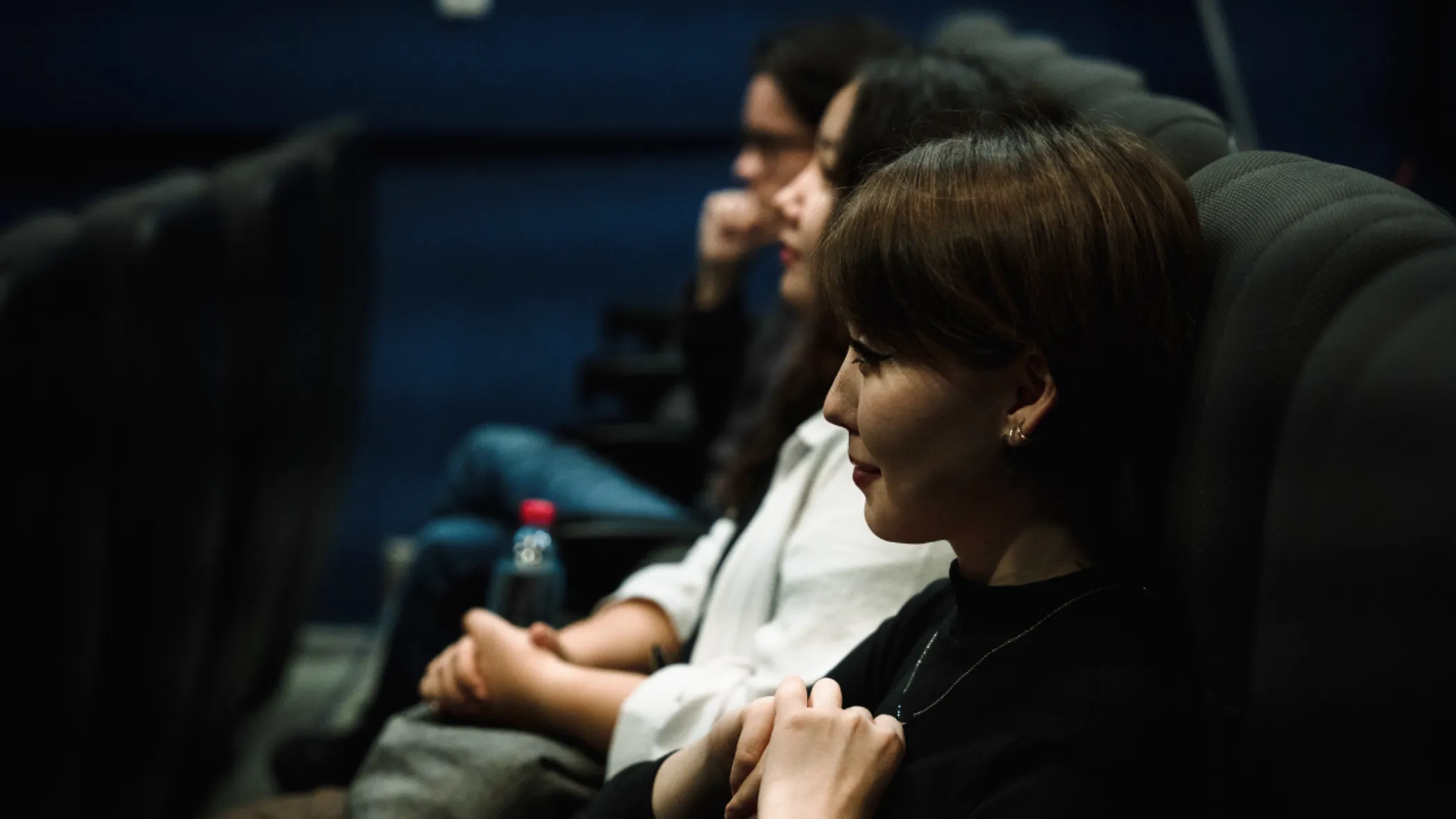
What Kazakh auteur films would you recommend?
I really like Emir Baigazin's "Harmony Lessons." In general, I appreciate Baigazin for his sincerity, and sincerity always prevails in silence. "A Dark, Dark Man" is excellent; I consider it Adilkhan Yerzhanov's best film. There is a 2005 film called "Vocal Parallels" by Rustam Khamdamov. It is a Kazakh musical – highly recommend watching it, a beautiful musical. From contemporary films, I am looking forward to "Madina" by Aizhan Kassymbekova. As for older films, of course, "Balkon" [by Kalykbek Salykov] is a classic.
